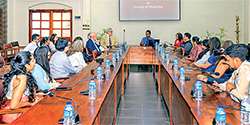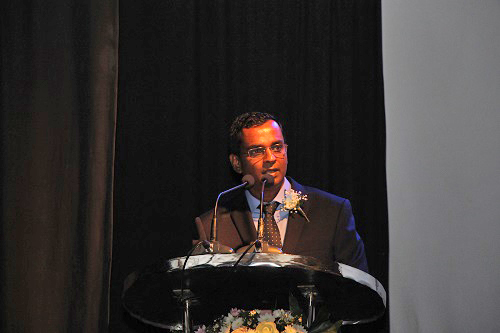Changing Face of an MBA
 Who could have predicted 40+ years ago that the top-20 companies (by total revenue) in the world would contain only two manufacturing companies, or that only five of the top-20 would be American, or that Chinese companies would dominate the list? Business management has changed considerably since the 1960s, yet MBA education has, for the most part, remained indistinguishable from that of 40 years ago. Despite globalisation, the IT revolution, business environments that are no longer ‘male & pale’, the loss of some sectors (plus the development of new ones) and the introduction of new players the core themes have remained very similar.
Who could have predicted 40+ years ago that the top-20 companies (by total revenue) in the world would contain only two manufacturing companies, or that only five of the top-20 would be American, or that Chinese companies would dominate the list? Business management has changed considerably since the 1960s, yet MBA education has, for the most part, remained indistinguishable from that of 40 years ago. Despite globalisation, the IT revolution, business environments that are no longer ‘male & pale’, the loss of some sectors (plus the development of new ones) and the introduction of new players the core themes have remained very similar.
MBA students are still primarily taught the way they were in the 1960s and 1970s – in particular in the leading schools that are the principal recruiting grounds for the foremost multi-national companies. Whilst it’s certainly true that many seats of learning have made significant changes to their MBA curricula in recent years, surely now is a perfect opportunity to rethink the fundamental assumptions underpinning the purpose and scope of an MBA education in response to a swiftly changing business landscape? While MBA educational models from the 1950s were related to vocational training that suited the dominance of the manufacturing industry, the 1960s saw the introduction of classroom instruction as primacy shifted from the factory floor to the boardroom. While this model served its purpose for many years, today’s rapid economic and geopolitical landscape makes it outdated and unresponsive in a larger global context.
Therefore, as both employers and academics now question the efficacy of the current MBA educational model - with its heavy focus on analytical and research tools, its lack of cross-functional integration, its bias towards hypothetical scenarios instead of ‘real-world’ business cases, and its deficit in ‘soft’ skills training - surely now is an appropriate opportunity to reconceptualise MBA education, especially with regards to globalisation, sustainability, communication, integrated learning, cultural sensitivities and specialisations? Rather than introduce international issues to students as a finite, one-time acquisition of skills, global citizenship could become a life skill taught within a business methodology. Like their corporate partners, universities have been grappling with the need to become more engaged in the greater global community.
Though many universities have found ways to address international issues in their purely academic fields, they are usually lacking within the MBA curricula. To ensure commitment to continuous learning, academics must be encouraged to promote and develop a set of values - in partnership with industry - that broadly comprises global citizenship and responsibility. Management education programs should engage in research and teaching that advances our understanding about corporation’s roles in creating sustainable social, environmental, and economic business models. Likewise, management education programmes must encourage dialogue among educators, business and industry, governments, and others on critical issues related to global social responsibility and sustainability.
Many schools are offering modules (and some even have separate schools within the college) that emphasise their sustainable credentials, but very few of the established schools have inculcated these practices within their core programmes. A central assumption regarding MBA curricular design is that business issues affect all aspects of organizations and their relationships with markets and society. However, many MBA curricula continue to isolate particular skills or subject areas without integrating these across a range of learning experiences. To reflect substantive cultural and geopolitical changes an integrated MBA educational experience should take into emerging economic/political global trends, professional skills for global contexts and sustainability.
By addressing these drivers, academics can ensure that MBA students will be better prepared to maximize the benefits of all stakeholders. A recent AACSB study found that MBA graduates considered the ability to effectively communicate to be the single most important skill in their careers, yet only 6% of business schools were even moderately effective in teaching this skill. At present, most programmes focus solely on analytical skills – offering courses in accounting, finance, and marketing - and pay proportionately minimal attention to the ‘softer’ skills: professional communication, managing interpersonal relationships, cross-cultural sensitivity, and ethical standards. While companies seek prospective managers with intellectual acumen, strong soft skills, and analytical prowess, MBA programmes seem largely to facilitate development of students’ analytic abilities - to the detriment of soft skills. The constant progress of technological advancement should constantly change the way business thinks and acts.
Email, instant messaging, and video conferencing are now so commonplace that we forget that their usage still demands a high level of user competence. Not technical competence, communications competence that takes into account differing cultural modes of communication. Information flows freely, quickly, and instantaneously; it is possible to track information about people, products, and services in real time; customers can compare and contrast offerings from different vendors with little effort. This global connectivity has driven commercial change not seen sine the industrial revolution and offers virtually limitless business opportunities - but only if the information is accurate, valid, exchangeable, and understood by all stakeholders.
Students should be prepared not only to communicate well using a range of technologies, but also make rhetorically sound and culturally appropriate communication choices. These decisions require students to carefully consider the audience, purpose, and use of their multimodal messages and the cultural impact to the recipient of these messages. MBA graduates with a richer conceptual, technological, and global framework from which to make these communication choices will be much better prepared to thrive in 21st Century business environments.
AMBA Research Lab - A.G Sonalie Silva









































.jpg)
.jpg)

.jpg)
.jpg)
.jpg)
